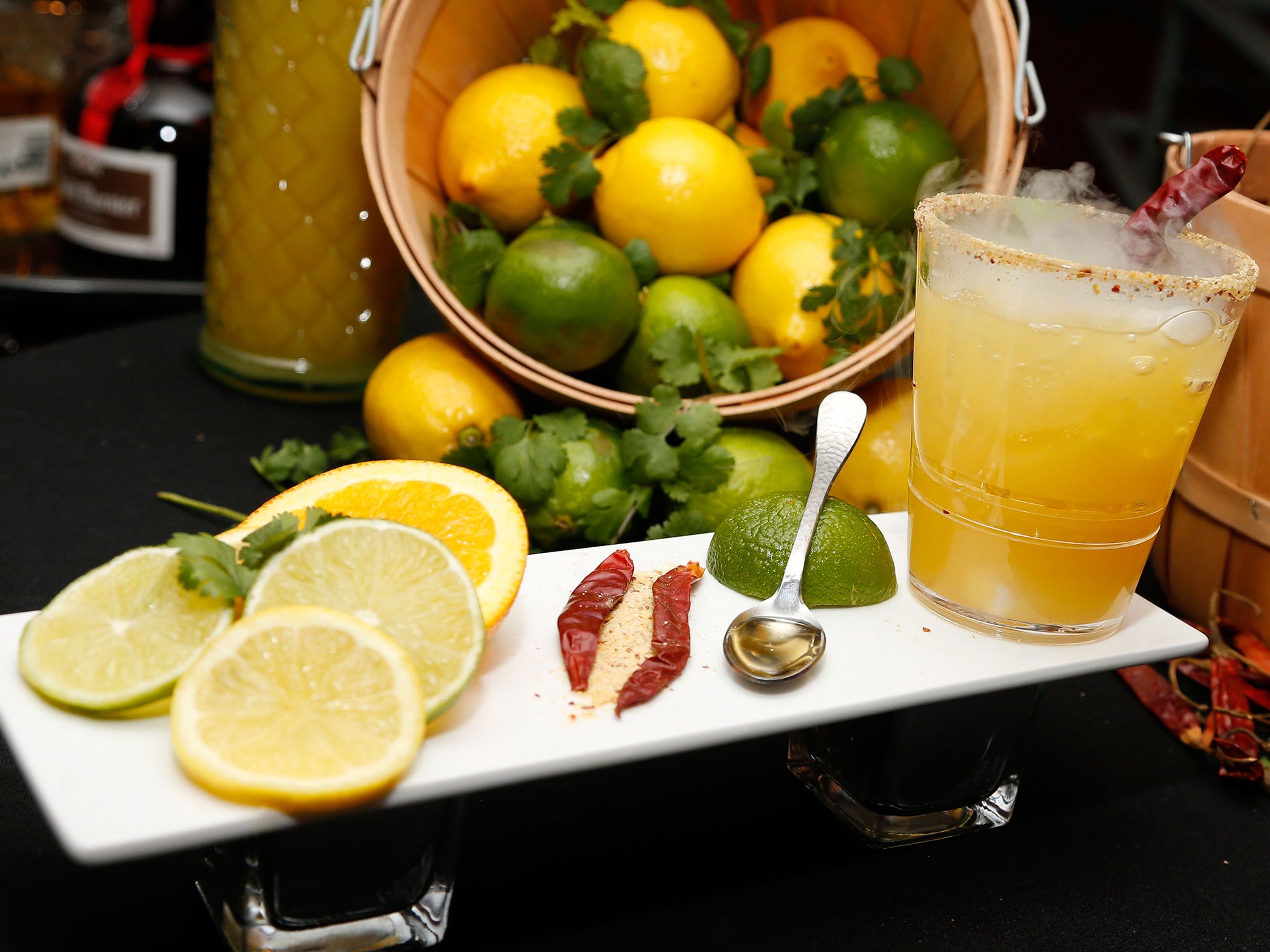5 myths about your New Year 'detox' - debunked
Put down the quinoa and step away from the juicer

Your support helps us to tell the story
From reproductive rights to climate change to Big Tech, The Independent is on the ground when the story is developing. Whether it's investigating the financials of Elon Musk's pro-Trump PAC or producing our latest documentary, 'The A Word', which shines a light on the American women fighting for reproductive rights, we know how important it is to parse out the facts from the messaging.
At such a critical moment in US history, we need reporters on the ground. Your donation allows us to keep sending journalists to speak to both sides of the story.
The Independent is trusted by Americans across the entire political spectrum. And unlike many other quality news outlets, we choose not to lock Americans out of our reporting and analysis with paywalls. We believe quality journalism should be available to everyone, paid for by those who can afford it.
Your support makes all the difference.The New Year is almost upon us, which means we’re all about to be inundated with reasons why we need to stock our fridges with kale, buy expensive juicers and Instagram pictures of salads labelled #cleanse.
But despite the barrage of health information letting us know that we should be ‘detoxing’ our bodies, the January health kick may not be as useful as lifestyle gurus such as Gwyneth Paltrow may have you think.
Before you sprint down to your local yoga studio for a green gunk smoothie and a colonic, here are a few detox debunkers.
1. Say no to the colonic
Colonic irrigation sounds like the worst way to spend an afternoon ever, but if it will help detox your body and put you on the pathway to health it must be worth a try, right? Wrong.
Though irrigation fans will argue that if your colon is particularly bunged up toxins will spread back into your body, doctors have little evidence to support the idea that irrigation can ‘cleanse toxins’ from your colon. They may even argue that the procedure poses a risk of bowel perforation.
2.Juice detoxes
Celebs and lifestyle bloggers have popularised green juices, by toting them about like the tiny dog craze of the 00’s.
They’re famed for their detoxifying powers and a great way to get your five-a-day. While the latter may be true, the former is certainly up for debate.
Emma Brown, a qualified nutritionist, told the Daily Express: "It's not possible to force a 'detox' of our bodies by cutting out specific foods and drinking fruit and veg based juices."
And on the matter of ‘toxins’, she added: "If we had a build up of 'toxins' in our bodies we would feel extremely unwell."
3.Toxici-tea
Detox teas have had a huge boost in popularity this year, in part thanks to vast swatches of reality TV stars plugging various tea brands on their Instagram accounts.
They claim to help you lose weight and again, feature the claim of being able to ‘detox’ your body. But there are questions as to whether the health brews actually work.
In an article for Health.com, dietician Cynthia Sass points out that many of the teas recommend that you use in conjunction with a healthy diet and exercise – something we already know helps weight loss. Sass also highlights that “detox teas can also trigger a laxative effect, which causes your body to eliminate waste from your GI tract”, which can make your stomach appear flatter, while not actually contributing to fat loss.
4. Quinoa – a necessary evil?
The fashionable grain has been given superfood status and is often plugged as the healthy alternative to pastas and other stodgy carbs.
Its boost in popularity though is having an effect on the growers and while it may be good for your body it’s not good for the people who are harvesting it. The grain is usually grown in Bolivia, where it’s a staple part of the diet. Due to the quinoa boom and inflated price, it is now cheaper for Bolivians to eat imported food than their traditional dish.
Quinoa fiends are advised to try and source the grain from sustainable British sources if possible.
5. Coconut water
This drink would not look out of place on a tropical beach, but the healthy beverage has made its way into the mainstream and is now a staple in fridges everywhere.
It’s low in calories, low in fat and high in nutrients that the body needs. It’s also good for rehydrating – hence the popularity with gym goers.
But while it is low in calories, the calories it does contain are mainly sugars. In natural coconut water, there will be 1tsp of sugar for every 100ml of water, which if you’re a heavy ‘nut water drinker can stack up.
So – how do you actually detox?
Your body is already doing it for you. If we needed additional detoxing, we’d be given information from medical professionals rather than lifestyle gurus.
Healthy liver and kidneys detoxify the blood, removing any impurities and keeping the body clean. If everything is in working order, there should be no need to supplement this with faddy detox products. This tweet explains how.
How do you get healthy in the New Year?
If you want a health boost after a particularly heavy Christmas you just need to implement a healthy balanced diet, rich in fresh fruit and vegetables and exercise regularly. The NHS recommends that the average adult should undertake around 30mins of exercise five days a week.
If you smoke – quit, or at least cut down and cut down on alcohol intake.
That’s it – no teas, irrigations, super wonder foods, just healthy food and regular exercise.
Join our commenting forum
Join thought-provoking conversations, follow other Independent readers and see their replies
Comments